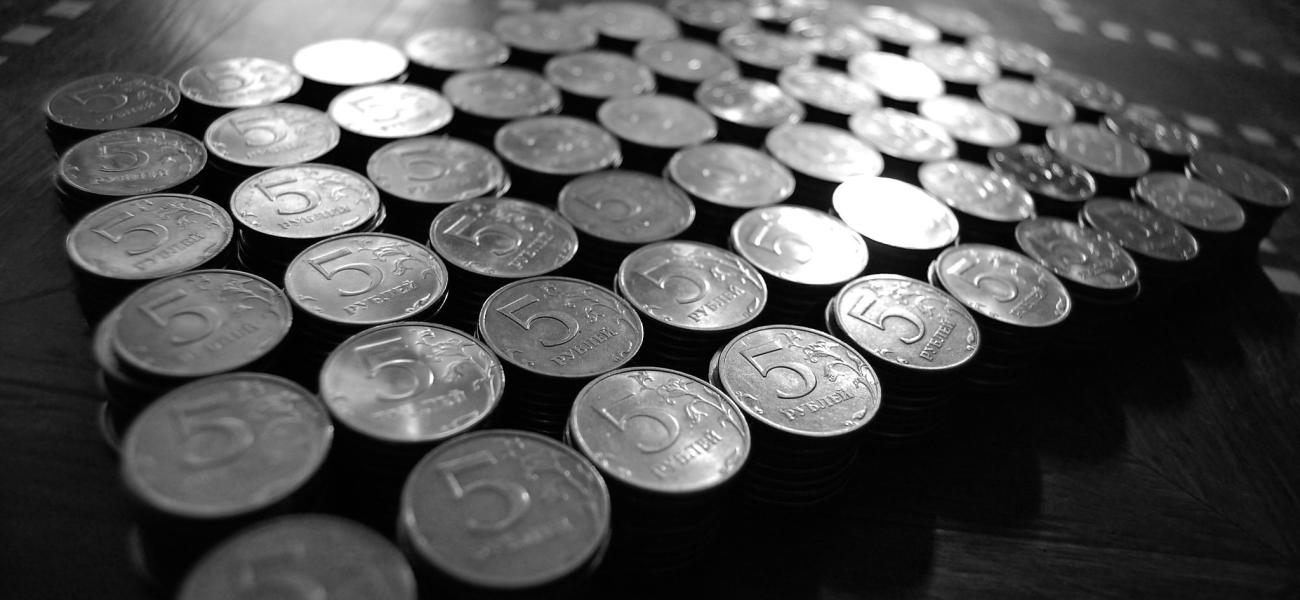In the Thick of It
A blog on the U.S.-Russia relationship
‘Crippling’ Sanctions? Russia’s Economy Is Afloat—For Now
Despite the latest Western sanctions against Russia approaching their half-year point, Russia’s war effort in Ukraine rages on. How has Russia sustained its campaign in the face of what many major news outlets and at least one academic institution have called “crippling” sanctions? One possible answer: Russia’s economy is not as crippled as people think. Just last week, the IMF revised upward its annual projection for changes to Russia’s GDP, saying it would contract not by 8.5% but only by 6% this year (at the same time, the IMF downgraded its forecasts for global, U.S., EU and Chinese growth). The World Bank has likewise revised its 2022 forecast for Russian economic output, saying it would shrink by 8.9% instead of the 11.2% estimated in April. Russia’s Central Bank, meanwhile, cut interest rates to below pre-invasion levels, another sign Russia’s economy is doing better than anticipated. While the U.S. and its allies are focusing on the long-term impact of sanctions, a number of other indicators show that, despite sanctions, Russia’s economy is doing as well as—or better than—other major economies.
Of course, there is clearly a negative side to the state of the Russian economy, from shrinking imports to plummeting equity indices. But getting a full picture means looking at positives and negatives. Here are some of the positives, which have been underreported in my view, to help our readers have a more complete picture when forming their opinions on Russia’s economic performance in the wake of sanctions.
Claim: Sanctions are crippling Russia’s economy.
- “The United States and its allies have imposed sanctions on Russia that have battered its economy.” (NYT, 05.19.22)
- “Russia's economy is collapsing as exports to the sanctioned country plummet.” (Business Insider, 05.23.22)
- “Russian efforts to rewire trade flows and bypass sanctions for the war in Ukraine can’t make up for the collapse in imports that’s crippling its economy.” (Bloomberg, 06.08.22)
- “Business retreats and sanctions are catastrophically crippling the Russian economy. (Yale’s Jeffrey Sonnenfeld et al., 07.20.22)
Inconvenient Facts:
- Currency: Since Russia’s Feb. 24 invasion of Ukraine, the euro has depreciated versus the dollar by 9%, the yen by 14%, the RMB by 7%. Which major power’s currency has appreciated the most?
- Answer: Russia’s ruble: +41-42%1 (Trading Economics, 08.04.22)
- Budget Balance: Since Jan. 1, which major power’s government’s budget balance has been managed most successfully?
- Answer: Russia: -3.8%
- U.S.: -6%
- China: -6.2%
- EU: -4.4% (Economist, 07.28.22)
- Answer: Russia: -3.8%
- Current Account Balance: Since Jan. 1, which major power had the highest current account surplus (% GDP)?
- Answer: Russia: 10.1%
- U.S.: -4.1%
- China: 2.5%
- EU: 2.3% (Economist, 07.28.22)
- Answer: Russia: 10.1%
- Government Bond Yields: Since Russia’s Feb. 24 invasion of Ukraine, which major power has been able to sell 10-year government bonds to the international market at a rate lower than before the invasion?
- Answer: Russia: from 12.7% to 9.0%.
- Germany, the U.S., the U.K. and China are all selling bonds at a rate equal to or higher than before the invasion. (Trading Economics, 08.04.22)
- Answer: Russia: from 12.7% to 9.0%.
- Natural Gas: From July 1 to Aug. 1, the international price of natural gas—Russia’s second-leading source of income from exports— increased by 45%. Since Feb. 24, it has increased by 78.4%.2 (Trading Economics, 08.04.22)
Joshua Henderson is a researcher at the Harvard Kennedy School’s Belfer Center for Science and International Affairs, where he focuses on Chinese domestic policy, political economy and U.S.-China relations.
Footnotes
- Figures as of Aug. 4, 2022, using a live tracker, so exchange rates change throughout the day.
- Figures as of Aug. 4, 2022, using a live tracker, so exchange rates change throughout the day.
The opinions expressed herein are solely those of the author. Photo by platinum07 shared under a Creative Commons license.

